US ally Kenya seeks China’s backing to join BRICS
- Update Time : Thursday, November 7, 2024
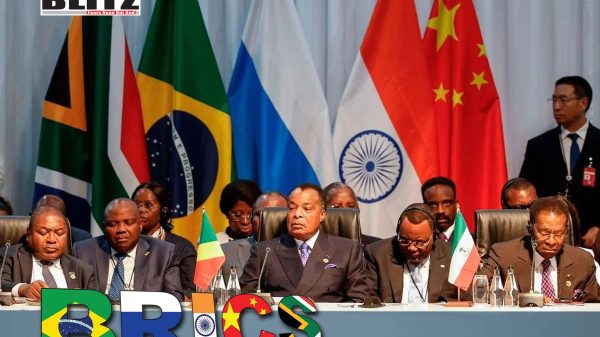
In a significant diplomatic pivot, Kenya, a longstanding ally of the United States in East Africa, has sought China’s support for its bid to join the BRICS economic bloc, which already includes powerhouse economies such as Brazil, Russia, India, China, and South Africa. Kenyan President William Ruto’s administration confirmed the request on November 4, following a high-level meeting with Li Xi, the Secretary of the Central Commission for Discipline Inspection of China’s ruling Communist Party. This move underlines Kenya’s push to diversify its economic alliances and reduce its dependence on traditional Western partners, particularly amid ongoing economic challenges at home.
The BRICS coalition, a formidable economic alliance that expanded this year to include Egypt, Iran, Ethiopia, and the United Arab Emirates, now represents approximately 46 prcent of the global population and accounts for over 36 prcent of the world’s GDP. This expansion comes amid global shifts, with developing nations increasingly looking to strengthen alliances outside Western-centric frameworks. Kenya, like several other African nations, has observed the benefits of BRICS membership, especially as the group prioritizes trade and development funding across diverse economies. Analysts in Kenya have been urging the government to take advantage of BRICS membership, pointing to the new entries of Ethiopia and Egypt as signals that Kenya’s inclusion could bring substantial economic benefits.
The decision to seek China’s endorsement is not without context. China has emerged as one of Africa’s leading economic partners, investing heavily in infrastructure and development projects across the continent. For Kenya, whose economy has been hit hard by a cost-of-living crisis and recent political upheaval, closer ties with China and BRICS could provide much-needed financial support and strategic advantages.
Kenya has faced a challenging economic environment in recent years, with rising inflation, high unemployment, and a struggling currency. The government’s attempts to address these issues by increasing taxes were met with widespread opposition and violent protests, forcing the withdrawal of a finance bill intended to raise $2.7 billion. These financial pressures, combined with public frustration over government policies, have pushed Nairobi to explore alternative economic partnerships.
One of the main attractions of BRICS membership is access to financial resources and investment opportunities that may be more accessible and better suited to Kenya’s development needs. President Ruto’s recent discussions with Chinese officials highlight the potential benefits that BRICS membership could bring to Kenya. During his meeting with Li Xi, Ruto praised China’s contributions to Kenyan infrastructure, notably through financing high-priority projects, including a multibillion-dollar dam. The projects, he stated, are critical to poverty alleviation efforts and could help Kenya address its economic challenges in a way that Western-backed programs have not always managed to achieve.
Kenya’s outreach to BRICS and China’s endorsement signals a subtle but growing shift in its foreign policy. Traditionally, Kenya has been a close ally of the United States, benefitting from military aid and development programs aimed at promoting stability and countering terrorism in the region. However, as Kenya diversifies its alliances, its economic and diplomatic connections with China and Russia are becoming more pronounced, which has raised concerns in Washington and other Western capitals.
President Ruto’s previous statements and actions suggest that this pivot towards China and Russia is deliberate. Last year, he met with Russian Foreign Minister Sergey Lavrov to discuss ways to expand trade and economic cooperation between Kenya and Russia. This meeting, followed by the recent outreach to China for BRICS support, demonstrates that Kenya is actively pursuing a more multipolar approach to international relations.
Kenya is not alone in this shift; African nations, in general, are seeking to balance their relations with Western powers and other rising global players. The growing influence of BRICS in Africa is emblematic of this trend, with countries like South Africa, Ethiopia, and Egypt already participating in the bloc. Ruto’s request to join BRICS, despite Kenya’s historical alignment with the US, illustrates the increasing appeal of a diverse foreign policy approach for African nations.
For China, Kenya represents a strategic foothold in East Africa. Its investments in Kenya are part of Beijing’s broader Belt and Road Initiative (BRI), which aims to develop infrastructure and expand trade routes across Asia, Africa, and Europe. Kenya’s port city of Mombasa is one of the most important maritime hubs on the African continent, giving China an incentive to maintain a strong presence there to facilitate trade across the Indian Ocean.
Beyond infrastructure, China is also exploring opportunities to invest in Kenya’s hospitality and tourism sectors, both critical to the country’s economy. President Ruto has expressed interest in transforming Nairobi into a regional convention hub, which aligns with China’s interests in expanding its influence in East Africa’s service industries. In his recent remarks, Ruto noted that Kenya seeks China’s support in attracting private-sector investments, particularly in the hospitality industry, which could further bolster Kenya’s economic recovery efforts.
China’s willingness to endorse Kenya’s BRICS bid aligns with its strategy of cultivating strong alliances in regions traditionally influenced by Western powers. By backing Kenya’s BRICS ambitions, China reinforces its position as a key partner for African development while countering Western influence in the region. Additionally, Kenya’s pledge to support the One-China policy underscores its commitment to a deeper partnership with Beijing.
Kenya’s decision to seek BRICS membership through Chinese support is also driven by a desire for economic diversification. In recent years, many African countries have grown wary of relying exclusively on Western-backed economic models, which often come with strict financial conditions and policy requirements. The BRICS bloc offers an alternative model that is not only more flexible but also aligned with the development priorities of emerging economies. Access to BRICS’ resources and trade networks could open new avenues for Kenya, allowing it to negotiate better terms for loans, infrastructure funding, and technology transfers.
With its ongoing economic crisis and the need for sustainable growth, Kenya is eager to join a bloc that can provide access to capital and reduce dependency on traditional lenders like the IMF and World Bank. BRICS membership could also enhance Kenya’s trade relations with other emerging economies, creating new export opportunities and allowing Nairobi to navigate the global market more effectively.
Kenya’s appeal to China for support in joining BRICS reflects a strategic recalibration in its foreign policy, shaped by domestic economic challenges and a broader shift in global alliances. President Ruto’s outreach to Beijing is not merely symbolic; it represents a calculated move to leverage BRICS as a platform for economic growth and resilience. With China’s support, Kenya could become the next African nation to join the bloc, strengthening its position as an influential player in East Africa and expanding its economic horizons.
As Kenya continues on this path, it faces a delicate balancing act, particularly in managing its longstanding alliance with the United States while embracing new partnerships that challenge traditional Western influence. If successful, BRICS membership could usher in a new era of economic cooperation and geopolitical influence for Kenya, showcasing how African nations are increasingly charting independent paths in a multipolar world.
Please follow Blitz on Google News Channel


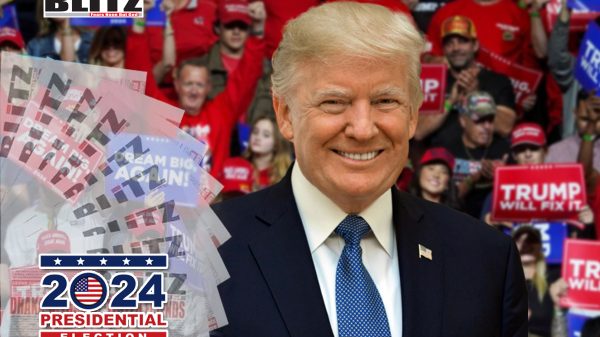
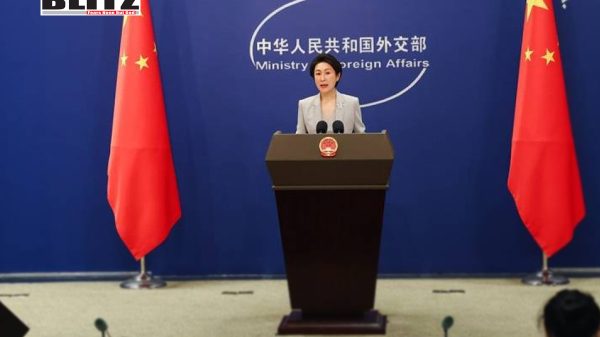

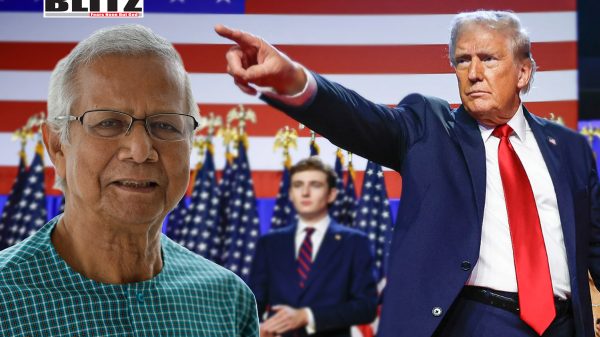


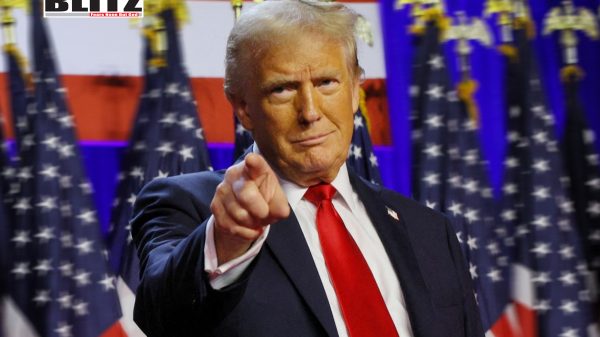


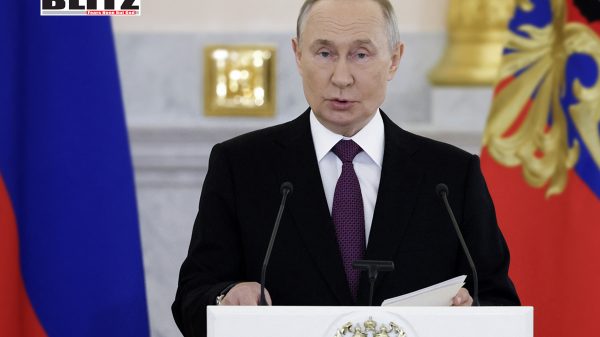
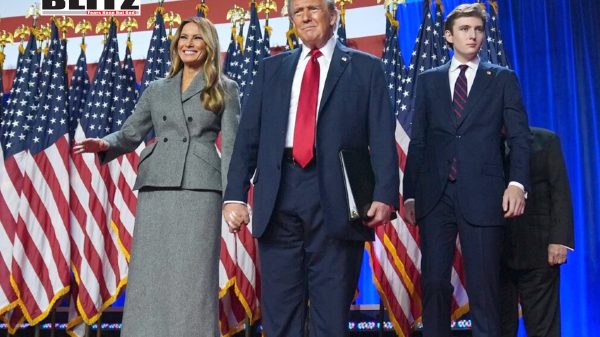

Leave a Reply